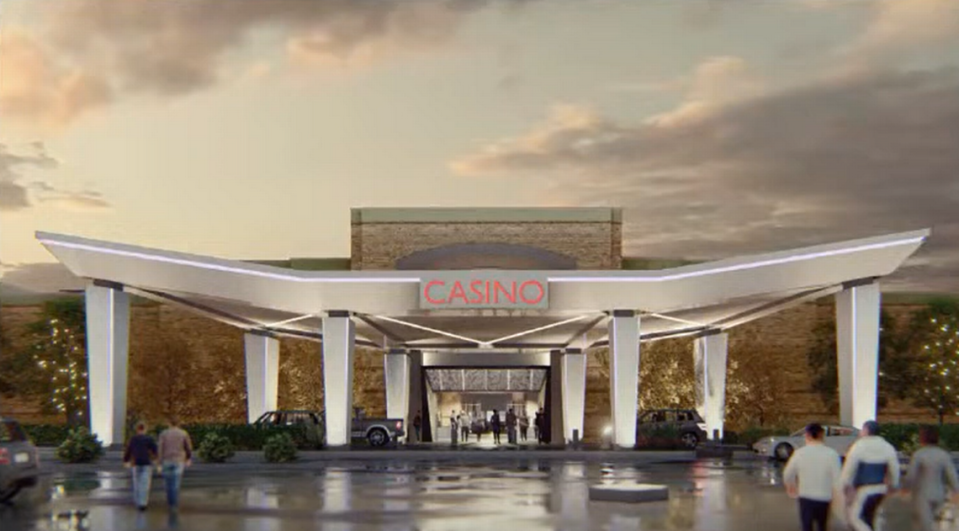Where does the proposed Centre County casino stand? Board sets deadline for public comment

Nearly a year after public comment began on the proposed mini-casino at the Nittany Mall, a state regulatory board announced Tuesday that it is finally ending the period for public input.
In a sign of progress for a project months behind schedule, the Pennsylvania Gaming Control Board said it will accept comments — via online, email, fax or mail — until 5 p.m. June 12. Sometime after that date, a public hearing will take place in Harrisburg to determine whether a casino license should ultimately be granted.
No hearing date has yet been set. But, according to a control board official, hearings typically occur on the same day as regularly scheduled meetings. And, based on the PGCB’s public calendar, the next three such meetings are scheduled for June 15, July 20 and Aug. 17.
It’s possible the hearing for Centre County’s mini-casino, within the boundaries of College Township, could be scheduled as little as 24 hours beforehand. However, according to PGCB spokesperson Douglas Harbach, agendas are usually posted Monday with the meetings taking place Wednesday — so the public should know at least two days beforehand.
Although the public is invited to attend the hearing, no further public comment will be taken there.
Centre County’s proposed casino first took shape in September 2020 when Penn State alum Ira Lubert bid $10 million to win a mini-casino license, also known as a Category 4 license, which allows for the operation of a casino about one-quarter to one-half the size of a typical Pennsylvania casino. In January 2021, Bally’s Corporation announced it partnered with Lubert to construct a $120 million mini-casino, which could feature up to 750 slot machines and 30 table games with plans to include sports betting.
An initial public hearing was held in August 2021 at the Penn State Hotel & Conference Center, and a hearing in front of the PGCB was expected in Harrisburg last fall. But that hearing never materialized.
When asked about specific reasons for the delay, and the prolonged period for public comment, Harbach said the pandemic played a significant role in the latter. As far as the delay, Harbach said background work first had be completed before it was given to the board for review.
“Many investigations take a good bit of time, sometimes because we have to continue asking for more and better info,” Harbach said. “Remember that we do background investigations for the licensing of many different gaming entities such as manufacturers, suppliers, etc., not just casinos. Many have taken a considerable amount of time.”
A lawsuit from a competing bidder was also filed last year against Lubert, the former chair of the Penn State board of trustees, and his company — SC Gaming Op Co., LLC — for allegedly partnering with some who were ineligible to bid. But the PGCB has consistently denied there was any correlation between the lawsuit and delay. The lawsuit is still listed as active.
Bally’s initially expected construction to start in the first half of last year, with the casino to open about a year later. Instead, construction permits still have yet to be approved and a license has yet to be granted.
Officials from Bally’s did not immediately respond to the CDT’s request for an updated timeline.
Only two more hurdles stand in the way of the mini-casino — having its license approved by the PGCB, which could occur at that to-be-determined hearing; and having construction permits approved by the Centre Region Code Administration.
Still, detractors of the casino have tried to convince officials not to grant a license.
Residents have continued to send Letters to the Editor, many have formally submitted their concerns to the PGCB, and more than 1,100 have signed on to a petition opposing the casino. Critics point to the potential for crime, strain on services, gambling issues for the vulnerable (e.g. Penn State students) and a community’s overall well-being.
Supporters have countered by pointing out the economic benefits and the potential revitalization of the Nittany Mall.
According to officials, the casino is expected to employ between 350 and 400 full-time equivalent positions. And, according to a consultant, College Township would likely stand to receive about $1.6 million during the casino’s first year of operation. (For comparison’s sake, the township’s annual General Fund Budget is about $10.5 million.)
A PGCB spokesperson previously told the CDT that the host municipality receives 2% of gross revenue from slot machines and 1% of table games. The same goes for the county. However, sports wagering revenue does not specifically go to a municipality or county.
Those who would like to submit their opinions on the record for a potential Centre County casino, whether in favor or against, can do so until 5 p.m. June 12. Community members can email boardclerk@pa.gov, fax 717-265-7416, submit a comment via a link on the board’s homepage or mail comments to:
PA Gaming Control Board
303 Walnut St., 5th Floor Commonwealth Tower
Harrisburg, PA 17101
Attention: Board Clerk

